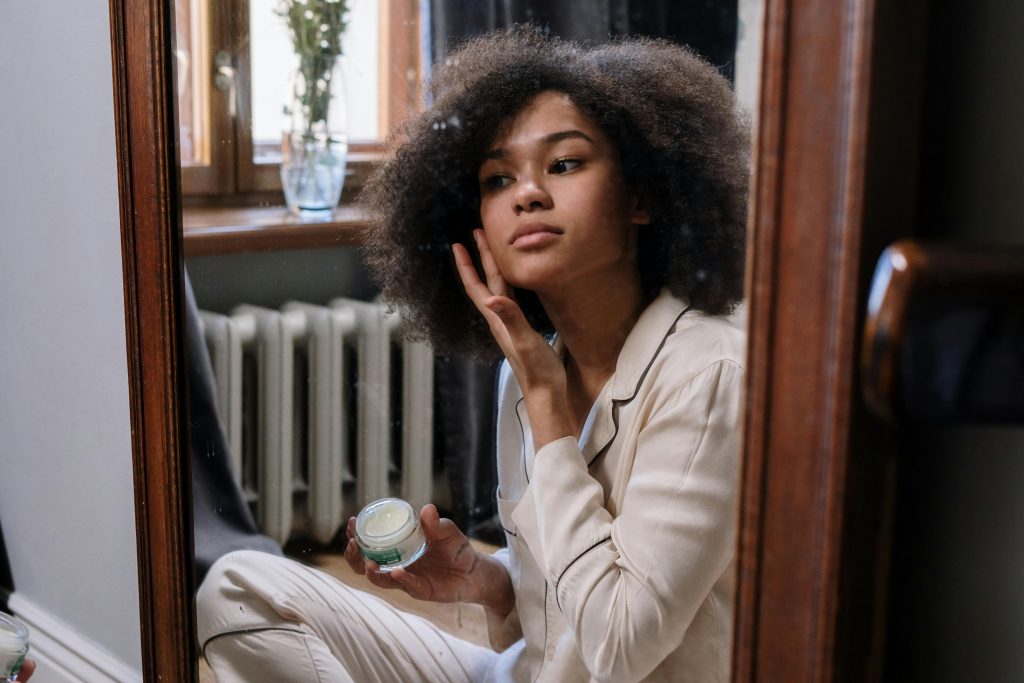

- Adult acne stems from various factors like hormones, stress, diet, and skincare routines.
- A tailored approach is essential for managing adult acne effectively.
- Consistent skin care routines, including cleansing, exfoliating, and moisturizing, are crucial.
- Dietary adjustments, stress management, and seeking professional help are vital strategies.
- By implementing these strategies, you can achieve clearer, healthier skin and regain confidence.
Acne, often associated with the awkward teenage years, can persist well into adulthood, causing frustration, embarrassment, and sometimes even distress. While it may seem like a problem only teenagers face, adult acne is a reality for many individuals. Factors such as hormonal fluctuations, stress, diet, and skincare routines can all contribute to breakouts well beyond puberty. Dealing with acne in adulthood requires a different approach compared to teenage years. This article will explore the best ways to give your face a break from adult acne and reclaim your confidence.
1. Understanding Adult Acne:
Adult acne manifests differently from teenage acne and often requires a tailored approach for effective management. Understanding the underlying causes can help in devising an appropriate treatment plan.
Hormonal Imbalances:
Fluctuations in hormone levels, especially in women, can trigger adult acne. Hormonal changes during menstruation, pregnancy, menopause, or conditions like polycystic ovary syndrome (PCOS) can lead to breakouts.
Stress and Lifestyle Factors:
Chronic stress, poor diet, lack of sleep, and unhealthy lifestyle habits can exacerbate adult acne. Managing stress and adopting healthier habits can significantly improve skin health.
Skincare Products:
Using harsh or comedogenic skincare products can clog pores and aggravate acne. Opt for non-comedogenic, gentle products suitable for acne-prone skin.
2. Adopting a Consistent Skincare Routine:
Establishing a consistent skincare routine is crucial for managing adult acne. A well-rounded routine should include cleansing, exfoliating, moisturizing, and targeted treatments.
Cleansing:
Use a gentle cleanser twice daily to remove dirt, oil, and impurities without stripping the skin of its natural oils. Look for products containing salicylic acid or benzoyl peroxide to help prevent breakouts.
Exfoliation:
Regular exfoliation helps unclog pores, remove dead skin cells, and promote cell turnover. However, be cautious not to over-exfoliate, as it can irritate the skin and exacerbate acne. Opt for gentle exfoliants like alpha hydroxy acids (AHAs) or beta hydroxy acids (BHAs).
Moisturizing:
Even oily and acne-prone skin requires moisturization, contrary to popular belief. Choose oil-free, non-comedogenic moisturizers to keep the skin hydrated without clogging pores.
Targeted Treatments:
Incorporate targeted treatments such as spot treatments or serums containing ingredients like retinoids, niacinamide, or tea tree oil to address specific acne concerns.
3. Dietary Adjustments for Clearer Skin:
While diet alone may not be the sole cause of adult acne, certain foods can exacerbate breakouts in susceptible individuals. Making dietary adjustments can complement skincare efforts and promote clearer skin.
Limit Dairy and Sugar:
Dairy products and high-glycemic foods like sugar and refined carbohydrates may trigger acne flare-ups in some people. Limiting intake or opting for alternatives can help reduce breakouts.
Increase Antioxidant-Rich Foods:
Incorporate antioxidant-rich foods such as fruits, vegetables, nuts, and seeds into your diet. Antioxidants help fight inflammation and oxidative stress, which are linked to acne development.
Stay Hydrated:
You need hydration to maintain healthy skin. Make sure to drink a lot of water throughout your day to keep the skin hydrated and support its natural detoxification processes.
4. Managing Stress for Clearer Skin:
Chronic stress not only affects your mental well-being but can also take a toll on your skin. Finding effective stress management techniques can help reduce acne breakouts and promote clearer, healthier skin.
Practice Relaxation Techniques:
Incorporate relaxation techniques such as deep breathing, meditation, yoga, or tai chi into your daily routine to reduce stress levels and promote inner calm.
Engage in Physical Activity:
Regular exercise not only improves physical health but also helps alleviate stress and promote better sleep, both of which are beneficial for skin health.
Prioritize Self-Care:
Make self-care a priority by indulging in activities you enjoy, spending time with loved ones, and setting aside time for relaxation and rejuvenation.
5. Seeking Professional Help:
In some cases, adult acne may require professional intervention. Dermatologists can provide personalized treatment plans tailored to your specific skin concerns and may recommend certain facial treatments for acne-prone skin.
Consulting a Dermatologist:
If over-the-counter products and lifestyle changes aren’t effectively managing your acne, consider seeking guidance from a dermatologist. They can prescribe topical or oral medications, perform procedures like chemical peels or laser therapy, or recommend suitable facial treatments for your skin.
Dealing with acne in adulthood can be challenging, but it’s not impossible to achieve clearer, healthier skin. By understanding the underlying causes of adult acne and adopting a holistic approach that includes skincare, dietary adjustments, stress management, and professional guidance when needed, you can give your face the break it deserves. Remember, consistency and patience are key, and with the right strategies in place, you can regain your confidence and embrace your skin with renewed clarity and vitality.

